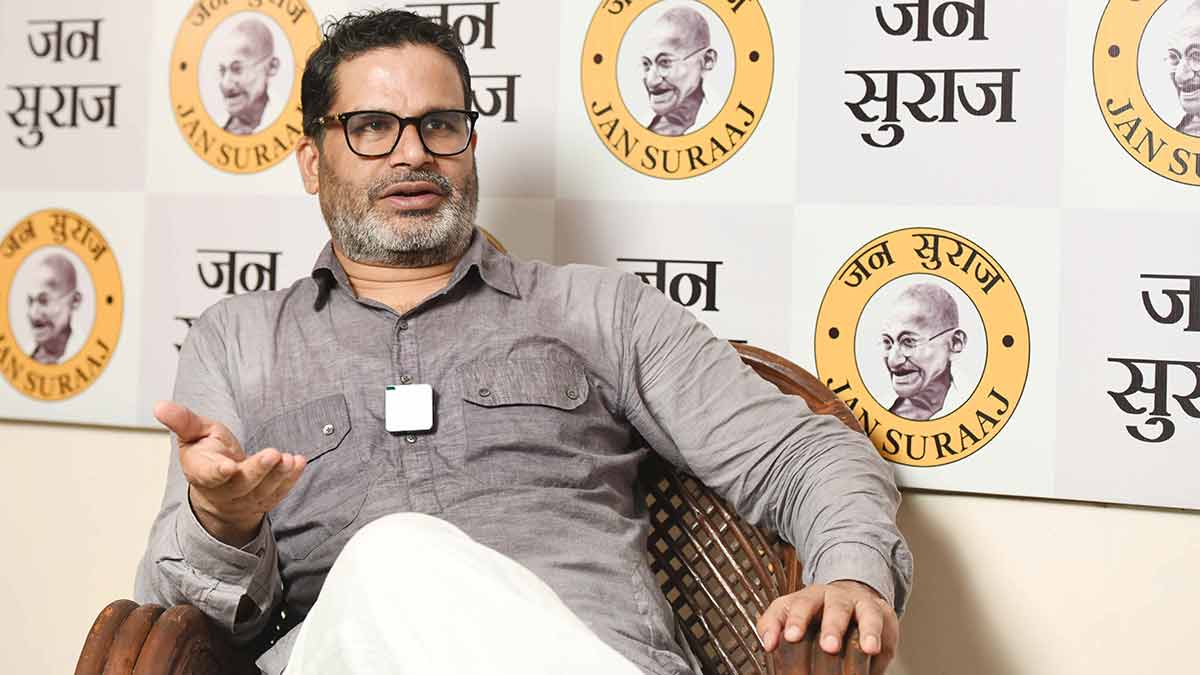How Prashant Kishor is restructuring his Jan Suraj Party ahead of the Assembly elections
 Prashant Kishor | Sanjay Ahlawat
Prashant Kishor | Sanjay Ahlawat
The upcoming assembly elections in Bihar are expected to be a three-cornered contest, with election strategist-turned-politician Prashant Kishor poised to contest all seats under his Jan Suraj Party (JSP). This move positions JSP as a key challenger to both the incumbent National Democratic Alliance (NDA) and the opposition-led Mahagathbandhan (grand alliance).
Kishor, who has built a reputation as a master election strategist over the past decade, is now banking on his grassroots outreach and organisational restructuring to convert political momentum into electoral gains. The recent induction of two high-profile leaders, Uday Singh and RCP Singh, highlights an attempt to leverage caste equations and administrative experience to bolster his party’s appeal.
Uday Singh, a two-term former BJP MP from Purnia, has been appointed JSP’s president. A scion of a prominent political family, Singh’s lineage includes MPs, a former Finance Commission chairman, and even a former Chief Minister of Bihar. Singh, though, lost the 2014 election on a Congress ticket. Singh brings with him the credibility of legacy and the potential to mobilise the influential Rajput vote base, which has traditionally aligned with the BJP. His proximity to Kishor in recent months signals his growing role in building the party’s cadre network across Bihar.
Complementing Singh’s appointment is the entry of RCP Singh, a former IAS officer and Union minister in the NDA government. Once a close confidant of Chief Minister Nitish Kumar and a former president of the JD(U), RCP Singh's fallout with Kumar and subsequent political isolation has found new relevance under the JSP banner. A Kurmi leader from Nalanda, Nitish Kumar’s stronghold, RCP Singh’s inclusion is seen as posing a challenge to the JD(U)’s hold over the Kurmi vote bank.
Earlier, Kishor had positioned Manoj Kumar Bharti, a former diplomat, who belongs to the Dalit community, as the working president of the party.
These appointments aim to complete the party’s caste calculus by incorporating leadership from different influential communities in the state.
Kishor, a Brahmin by caste, has deliberately chosen to refrain from holding any formal post in the JSP, stating that he will focus on campaigning and crafting the party’s vision. His messaging has largely centred on governance reform—promising improvements in education, employment, and transparency in administration.
While caste remains a dominant theme in Bihar’s electoral politics, Kishor’s strategy blends social engineering with a development-centric narrative. His promise of an alternative to entrenched players like the BJP, JD(U), and RJD is rooted in his criticism of old politics and governance stagnation in the state. But the real test for Prashant Kishor would lie in converting his campaign machinery and strategic insight into actual electoral success. For this, the state polls would be keenly watched.
India